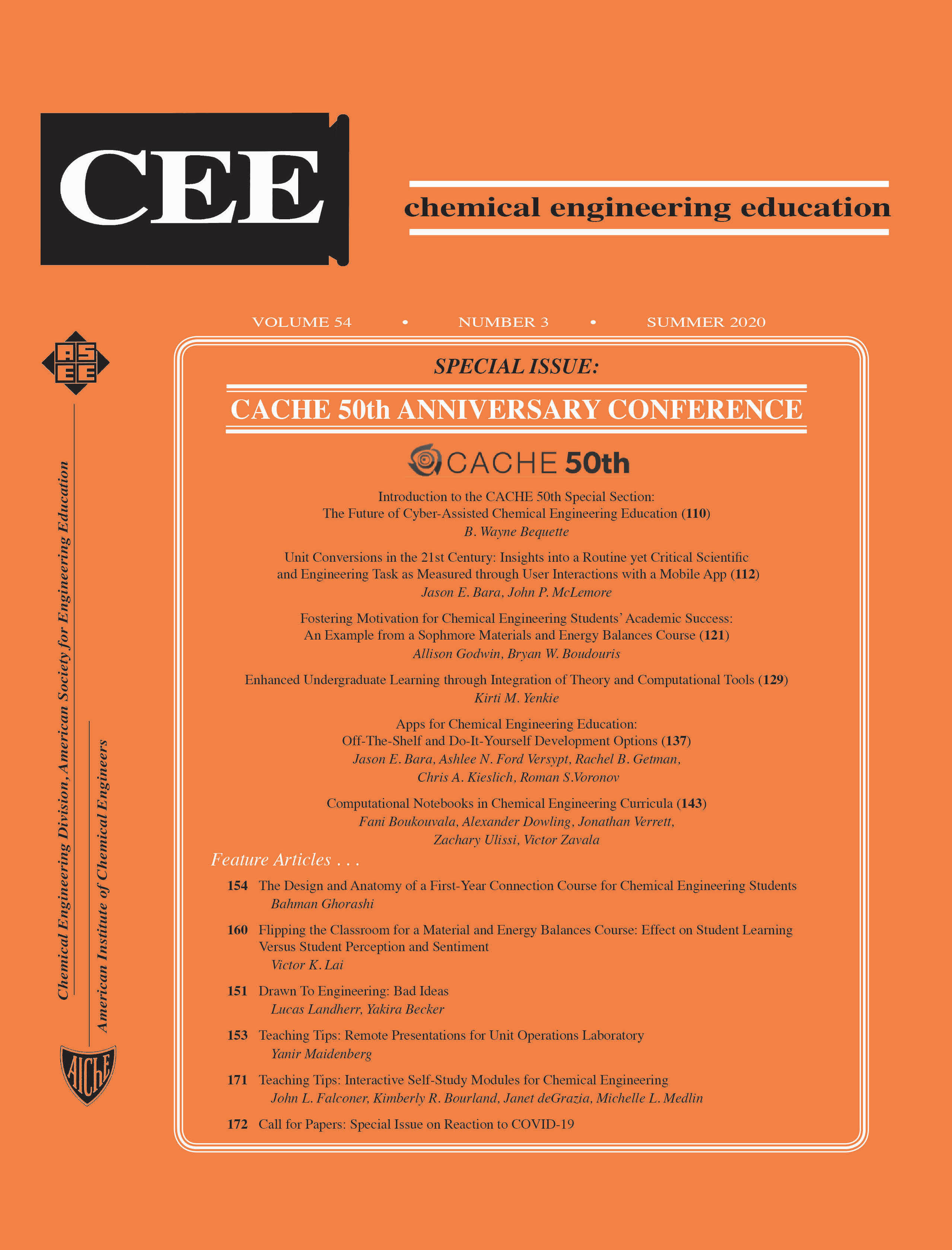Computational Notebooks in Chemical Engineering Curricula
Abstract
Computational notebooks are an increasingly common tool used to support student learning in a variety of contexts where computer programming can be applied. These notebooks provide an easily distributable method of displaying text and images, as well as sections of computer code that can be manipulated and run in real-time. This format allows instructors to introduce content and methodologies to students in a single document that can be copied and manipulated. In this paper we outline case studies of computational notebook usage at a variety of institutions. These notebooks have been successfully used in required and elective courses from the undergraduate sophomore-level to the graduate level. In each case study, implementation, pedagogical strategies, and results are discussed.


